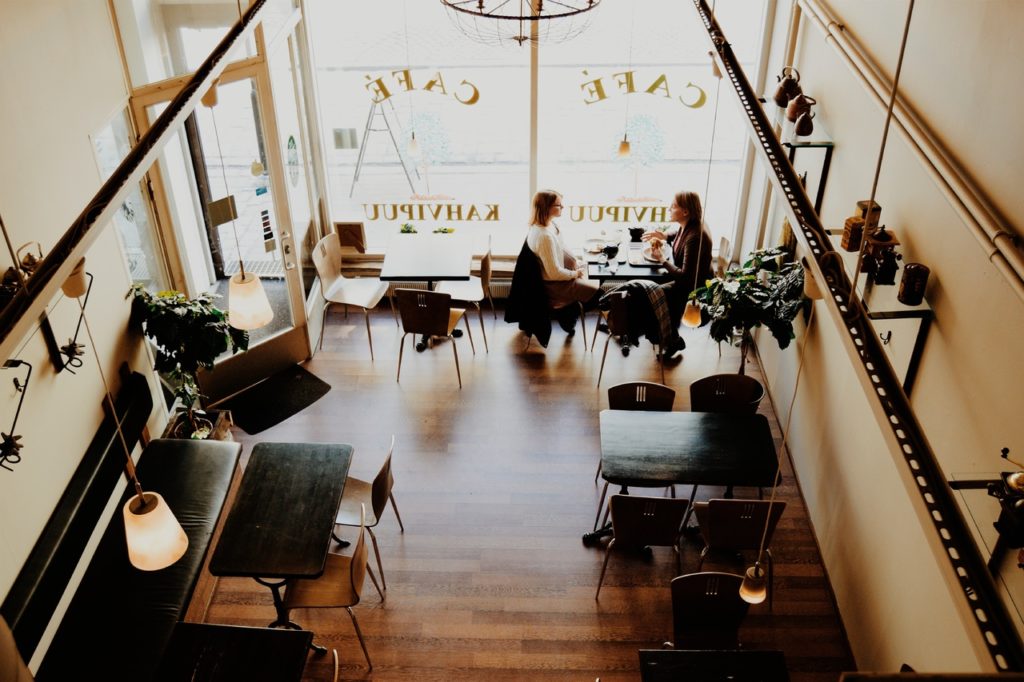Various sectors of the economy have been reacting to the announcement by the national security council of a wide range of measures to relax the lockdown in place since March.
The horeca sector (hotel-restaurant-cafe) was the first to close completely, and is among the last to open up again.
“According to the first reactions reaching us, our members are relieved,” said Philippe Trine, president of the Brussels hotel and catering federation. “The cafes, above all, are reassured not to have to carry out a compulsory registration of customers. Although it is normal to give a name to reserve a table at a restaurant, consumers draw the line at having to show their ID card just to go for a cup of coffee.”
Meanwhile the UCM, which represents small businesses, said the measures imposed for the reopening of restaurants and cafes were “manageable”.
“Clearly, the authorities trust the sense of responsibility of entrepreneurs. Rightly so, since they have consistently followed health instructions in recent weeks, as evidenced by the evolution of the figures for the epidemic,” the UCM said.
Some businesses are not interested in pumping money into temporary security measures. “I don't feel like investing in plexiglass, for example, to hear in a few weeks that it is no longer necessary,” said one owner. “If I do pay the price for those measures, as well as the brewer, rent and staff, and I can only let in a handful of customers, then it does not really pay off.”
Matthias De Caluwe, director of the industry federation Horeca Vlaanderen, was satisfied with the measures announced. “This is a relaxation of the measures for the catering industry. I want to thank the security council for that. It is important for business lunches at noon and it gives a little more space for pleasant terrace moments. It is an important step, but I am waiting for the texts to be finalised” he said.
The Association of Flemish Travel Agencies said it was satisfied that tourism can restart. “This is very good news because it provides perspective," said spokesperson Koen Van den Bosch. Although the sector pointed out that it is for destination countries ultimately to decide whether tourists can enter.
“We will have to take account of many conditions, as we do at home,” Van den Bosch said. “It is therefore crucial that the traveller who wants to go abroad is fully informed.”
“Our focus will be on a holiday in our own country,” said Peter De Wilde of Visit Flanders. Last year, only 15% of people travelling for longer than four nights chose a destination within Belgium, but according to De Wilde this will be different in 2020.
Another change comes with the opening up of places of worship, with a limit of 100 worshippers at a time, and a social distance of 1.5m. The Muslim Executive of Belgium issued a statement.
“We call on the faithful to be wise and to understand this measure, which will sometimes lead to entry restrictions once capacity is reached,” the Executive said. “We are aware that the measures specific to the exercise of Islamic worship in places of prayer will make the practice of worship less easy and less pleasant, but they remain necessary to preserve the health and lives of the faithful and their fellow citizens.”
Travel agents are less happy with the way the meeting of the security council ended. Uncertainty reigns. One manager of a travel agency explained to RTL News.
“We have almost as many questions today as we did yesterday,” he said. “We learn that we have the theoretical possibility of going abroad, but we do not know if we will be accepted in other countries, even in the Schengen area. We are still in the dark because we have to provide concrete answers to our customers and today we are unable to tell them where they can go on holiday tomorrow.”
Wedding planners are also less than happy.
Banquet and reception rooms may reopen from July 1 with a maximum of 50 people present. “Our companies cannot operate like that,” said a spokesperson for HL Belgium, which represents the sector.
“It is irresponsible that the solutions proposed to help our sector were not listened to. This is really a slap in the face.”
Alan Hope
The Brussels Times

